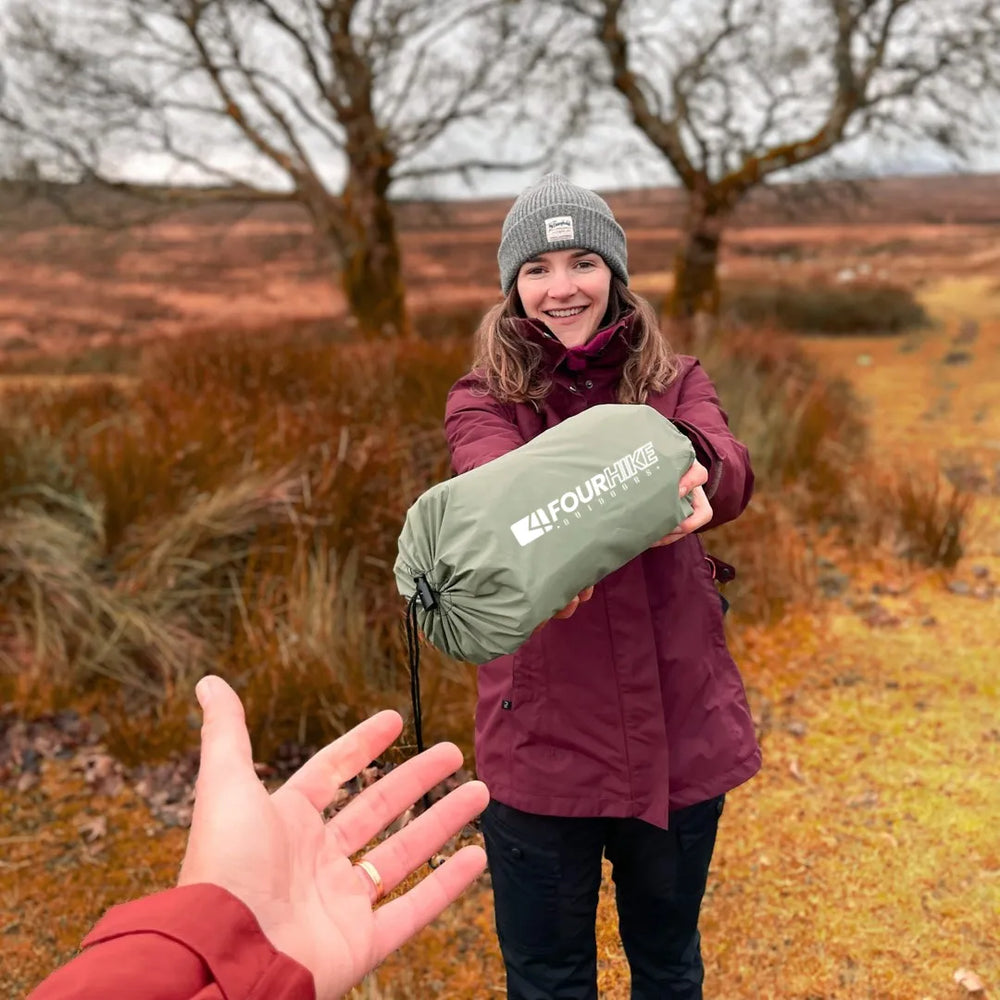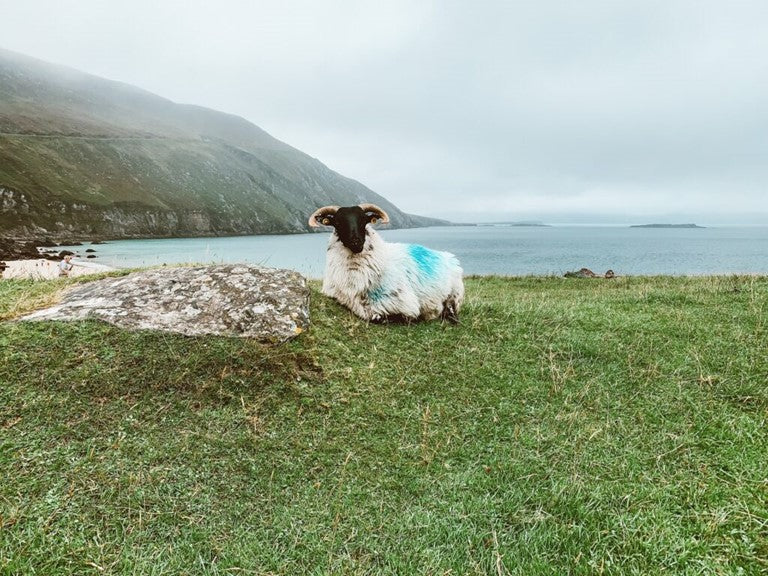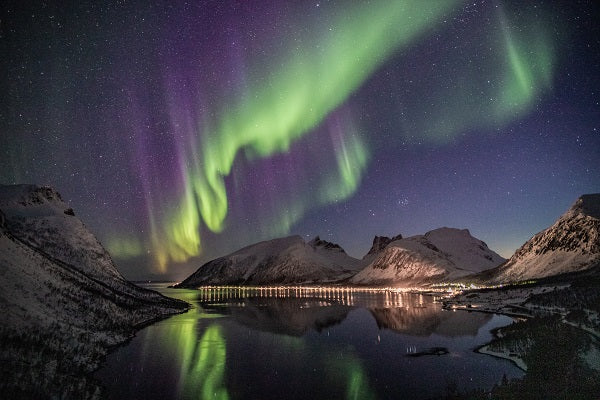Solo Camping Guide
Camping trips are always a great option for a family holiday or a trip with friends. However, solo camping can be equally rewarding and give you the opportunity to organize your break exactly as you please, without any distractions. In fact, around 8% of campsite bookings made through Pitchup in 2022 were for solo travelers.
If you're considering a solo outdoor adventure, you'll need to be self-reliant and ensure your camping skills are up to scratch. This guide will help you prepare for your solo camping trip by providing tips on what to pack, how to stay safe, and why going camping on your own can be a wonderful thing.
6 Great Reasons to Go Camping on Your Own
Embarking on a solo camping trip can be a little daunting, but it can also be an incredible experience. Here are six great reasons why I believe everyone should try it at least once:
1. It tests your organizational skills
Going camping on your own requires a lot of preparation and planning. You'll need to pack everything you need and make sure you have all the necessary equipment. You'll also need to master skills like pitching your tent, starting a fire, and cooking outdoors. While it may be challenging, it's also incredibly rewarding to know that you're self-sufficient and can manage on your own.
2. You'll learn life skills
Camping on your own is an excellent opportunity to learn new skills. You'll need to set up your pitch, cook your food, and navigate on your own. You'll also need to be resourceful and find ways to solve any problems that arise. These skills are not only useful for camping but can also be applied to other areas of your life.
3. You'll be more able to enjoy nature
When you're camping alone, you have the opportunity to fully immerse yourself in nature. With no distractions, you can appreciate the sights and sounds of the natural world around you. Whether it's watching the stars at night or listening to birdsong in the morning, you'll be able to enjoy some real 'me-time' and escape from the stresses of daily life.
4. There may be social benefits
Camping alone doesn't mean you have to be alone all the time. Many campsites have facilities like pools, sports areas, and evening entertainment where you can meet other people. You might also find yourself more open to meeting new people when you don't have a partner or friend to cling to. Even if you prefer to be alone, it's always nice to have the option to socialize if you want to.
5. You can set your own schedule
One of the best things about camping alone is that you can set your own schedule. You don't have to worry about anyone else's preferences or needs. You can decide what activities you want to do and when you want to do them. Whether it's hiking, biking, or just relaxing with a good book, you're in control of your own itinerary.
6. You'll grow in confidence
Going camping on your own is a real confidence booster. It's a chance to prove to yourself that you're capable of doing something challenging and rewarding. It may even inspire you to try other new experiences and push yourself out of your comfort zone. And who knows, you may even discover that you love solo camping so much that you want to try wild camping in the future.
In conclusion, camping on your own is a fantastic way to challenge yourself, learn new skills, and appreciate the beauty of nature. With a little preparation and a positive attitude, I believe that anyone can have a successful solo camping trip. So why not give it a try?
Solo camping gear checklist
9 key items to pack for a solo camping trip
When I go solo camping, I always make sure to pack the following items to ensure my safety and comfort:
- Sensible footwear: I pack sturdy shoes or boots to protect my feet from accidents or injuries while out and about.
- Whistle or personal alarm: I bring a whistle or personal alarm to attract attention if needed while out walking or to ward off an intruder at the campsite.
- Torch: I always pack a torch to help me find my way around or see what's going on around me at night, even if my site is well-lit.
- Reliable mobile phone: I bring a reliable mobile phone for taking photos, using a mapping app, sharing my location, and contacting people in case of emergencies.
- Detailed Ordnance Survey map: I never rely on a mapping app alone. I bring a detailed Ordnance Survey map for walks in case my phone runs out of battery or my signal fails.
- Phone charger or battery-pack charger: I always double-check that I have a phone charger if my campsite has a source of electricity. Otherwise, I bring a battery-pack charger and make sure it's charged.
- First aid kit: I pack a first aid kit with pain relief, bandages, plasters, sterile wipes, tweezers, and scissors to deal with any minor injuries for myself.
- Multi-tool knife: I bring a multi-tool knife with implements like scissors, tweezers, and a bottle opener. It's a small thing to pack but can be helpful in unexpected situations.
- Good book: I always bring a good book for a bit of relaxing downtime on an evening alone.
By packing these key items, I feel confident that I have everything I need to stay safe and comfortable during my solo camping trip.
Is it Safe to Solo Camp?
As someone who loves solo camping, I understand that it can seem daunting to camp alone. However, in most cases, it is generally safe to camp alone on a designated campsite. It is advisable to stick to a campsite for your first few trips, where you will have other people around if you need help with any aspect of your stay.
While it is a common belief that solo camping is less safe for women, camping remains a low-risk activity as long as you are well prepared and equipped. In fact, most of the issues involved with camping alone apply equally across genders. Aspects of weather, tent construction, and keeping your valuables safe in a tent are universal.
To ensure a safe and comfortable solo camping experience, here are some tips:
- Choose a well-lit and busy campsite.
- Inform someone of your camping location and expected return date.
- Keep your valuables with you or lock them in your car.
- Keep a whistle and flashlight with you at all times.
- Be aware of your surroundings and trust your instincts.
- Keep a first-aid kit with you at all times.
In addition to these tips, reading up on others’ personal experiences and advice for solo camping can help you understand the risks and how to deal with them.
Overall, solo camping can be a safe and rewarding experience as long as you take necessary precautions and are well-prepared. Don't let fear hold you back from experiencing the beauty of nature on your own.
11 Hints and Tips for Solo Camping
As someone who loves solo camping, I have learned a few tricks along the way to make my trips more enjoyable and stress-free. Here are 11 hints and tips for solo camping that I recommend:
-
Start small: Before embarking on a long solo camping adventure, try a one-night or weekend stay somewhere close to home. This will help you practice your skills and find out how you take to camping alone.
-
Try a dedicated campsite first: Even if wilderness camping is your ultimate aim, try a solo stay on a dedicated campsite first. This will give you the added security of having other people around to lend a hand if needed.
-
Choose your tent wisely: You'll need something that's easy to pitch and offers you enough space for you and your luggage. Don't forget that "one-person" tents rarely take into account the need to store a lot of kit.
-
Practice putting up your tent: Even if it's a tent you've used before, you may find the process of learning to pitch a tent on your own is a bit awkward at first. Practicing before you leave helps you learn useful skills like using rocks to weight down one side of the tent while you peg the other.
-
Choose a good spot: When you arrive on site, take a look around and choose a good spot that's not too distant from the facilities and other people. There is safety in numbers, so it's a good idea to be within a reasonable distance of other people.
-
Introduce yourself: Introduce yourself to site owners/staff and have a chat to see if they have any tips about the best spots on the site. Say hello to your neighboring campers too – they're often a friendly bunch, and a smile and a brief conversation can go a long way towards making you feel more relaxed.
-
Let someone know your plans: Without going into too much detail, tell site staff/fellow campers what your plans for the day are, so that they'll know when to raise an alarm or where to send help in the unlikely event of you getting lost or injured.
-
Use technology to your advantage: Harness the power of technology to do things like download maps before setting off and share your live location with a trusted friend or family member back at home via mapping apps. Download the What3Words app and you'll be able to pinpoint your exact location if you ever need to call for help. The Google personal safety app and iPhone Emergency SOS settings are worth exploring too.
-
Be mindful of social media: Don't share too much on social media during your trip, as there is a small possibility that your information falls into the wrong hands. Save it until you get home.
-
Have a backup plan: If you start to feel uncomfortable for whatever reason, have a backup plan. This might include sleeping in your car or even packing up and going home if something doesn't feel right. Save a number for the site owner or warden in your phone so you can call for help easily if you need it.
-
Don't be afraid to ask for help: Solo camping doesn't mean stubbornly having to tough it out alone at all times. Don't be afraid to ask for help if you need it – whether that's dealing with unwanted attention from a fellow guest or needing extra strength to pull out a stuck tent peg.
These are just a few of the tips that I have found helpful when solo camping. With a little preparation and a positive attitude, solo camping can be a truly rewarding experience.
Where is good for solo camping?
10 great UK campsites for solo campers
As a solo camper, it's important to choose your campsite well. You want to feel safe and secure, and have access to all the facilities you need. That's why I've compiled a list of 10 of the best UK campsites for solo campers, based on reviews from previous Pitchup customers who have travelled alone.
Blue Hills Touring Park, Cornwall
Located in the heart of Cornwall, Blue Hills Touring Park is a well-run site that offers peace, quiet, and security. The site is accessible by coded electric gates, and the wardens are very friendly. As a solo traveller, I felt very safe being there alone and didn’t once have any concerns.
Diamond Farm, Somerset
Diamond Farm in Somerset is a great choice for solo campers. From arrival, the friendly receptionists were welcoming and helpful. I felt safe as night warden’s mobile number was given out on paperwork. Receptionist offered to freeze ice blocks, charge my iPhone up at no charge. So helpful. Although I was a solo traveller by choice, I did not feel alone!
Camping @ Croyde Bay, Devon
Camping @ Croyde Bay is a fabulous small campsite where as a solo female camper, I felt safe and completely at home. After a long surf, it was a delight to come back to a practical outside shower to wash off the sand from my wetsuit and have a communal place to dry, then step inside a discrete female shower area with separate hair drying facilities!
Rectory Farm Fishing and Camping Site, Norfolk
Rectory Farm Fishing and Camping Site is a great choice for solo campers. The facilities are excellent and most of all the peace and quiet that you don’t get living in a city. The owners were very friendly and I will definitely book for longer next time.
Lane End Farm, Derbyshire
Lane End Farm in Derbyshire is a little gem. I can't fault the campsite. This was my first time solo camping and was a little nervous. I felt really safe and the owner was very friendly. Only 8 pitches and was advised of my pitch number before arriving.
Fire and Stars Woodland Camping, Leicestershire
Fire and Stars Woodland Camping is absolutely beautiful and secluded with friendly staff. It's a completely idyllic place to unwind. It was my first solo camp and I’m so glad I chose here to do it.
Riverside Caravan Park at the George, Gloucestershire
Riverside Caravan Park at the George is a great choice for solo female campers. The spacing was good between pitches with 2 pitches separated by a hedge in between. It was well lit at night – especially being a solo female, trip to the toilet felt safe.
Tip Top Campsite, West Yorkshire
Tip Top Campsite is a great site for solo campers. I can not recommend this site enough! I came for my first solo camp and I could not have picked a better site. I felt safe, welcomed and relaxed. The owners, Jonathan and Carole, could not have been any more welcoming if they tried.
Sychpwll Centre, Powys
Sychpwll Centre in Powys is a gorgeous stay. It's such a beautiful, peaceful spot in a lovely location, with nice eco-friendly facilities, and the nicest people (who couldn’t have been sweeter about me fretting over my first solo camping trip). Definitely a Five Star - and somewhere I’ll be coming back to again and again.
Treborth Hall Farm Caravan Site, Gwynedd
Treborth Hall Farm Caravan Site is a great choice for solo female travellers in their 20s. The owner was extremely friendly but not intrusive. Came by personally to check everything was okay and gave me information about the whole site. Made sure I was aware of how to contact him with any questions. As a solo female traveller in my 20s safety is always my first thought but the campsite felt safe and I was able to relax.
If you haven't found quite the right location for your solo camping trip yet, Pitchup has campsites available to book all around the UK, Europe and the rest of the world.




